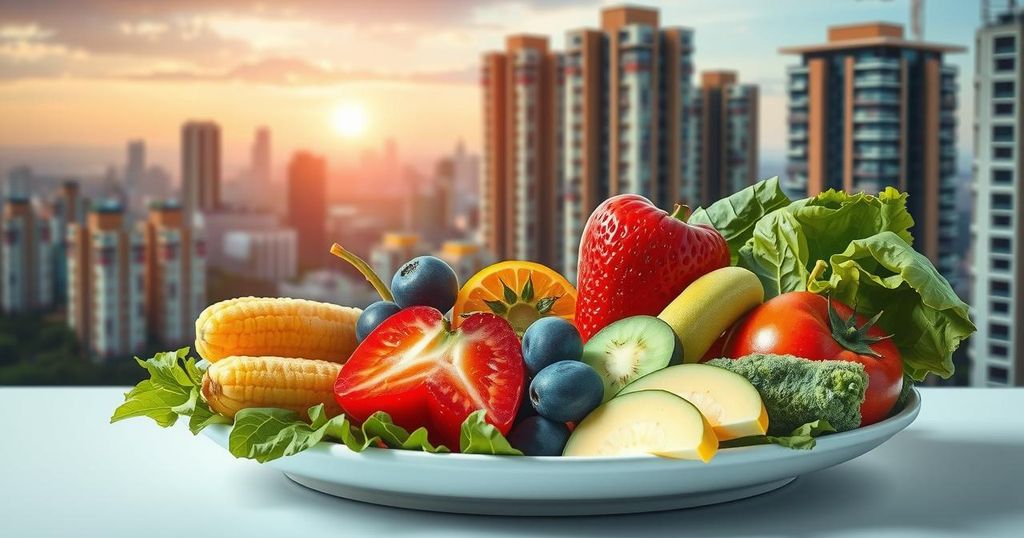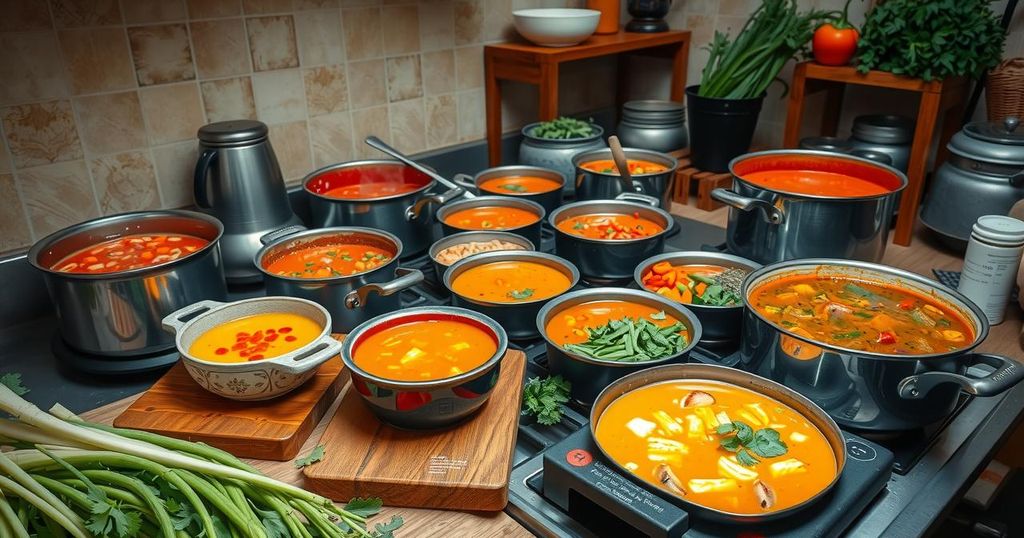India’s Obesity Crisis: Projections Indicate 450 Million Obese by 2050
A study in The Lancet projects India will have 450 million obese individuals by 2050, increasing from 180 million. The rise in obesity, particularly among younger generations, is attributed to processed food consumption. Prime Minister Modi has highlighted the importance of reducing oil intake to combat obesity. Health experts recommend limiting oil consumption and choosing healthier alternatives to manage weight effectively.
A recent study published in The Lancet reveals that obesity in India is on the rise, with projections indicating that by 2050, 450 million Indians will be classified as obese, up from the current 180 million. This alarming trend is expected to strain healthcare systems in low-resource countries significantly.
The study highlights that in 2021, over half of the world’s adults with overweight or obesity were located in just eight countries, including India, which ranked second after China. The report anticipates that global obesity rates among men will escalate from approximately 43.4 percent in 2021 to around 57.4 percent by 2050.
Notably, the report indicates that younger generations are experiencing increased weight gain at earlier ages, leading to higher incidences of health complications, such as Type 2 diabetes and cardiovascular diseases. The Prime Minister of India, Narendra Modi, has acknowledged the issue of rising obesity, emphasizing the importance of dietary changes in his “Mann Ki Baat” radio address.
In his address, Prime Minister Modi advocated for a 10 percent reduction in oil consumption as a crucial first step in combating obesity. He remarked that small adjustments in eating habits could lead to a fitter and healthier future for the nation.
Health professionals attribute the surge in weight gain to a growing reliance on processed foods that are high in unhealthy oils and salt. Hydrogenated oils, commonly used in various processed foods and as a cooking medium in restaurants, are particularly concerning.
Experts recommend that individuals limit their oil consumption to 20 ml per day, equivalent to two teaspoons. Nutritionists also suggest transitioning from hydrogenated oils to healthier alternatives such as mustard, groundnut, or coconut oil while incorporating a variety of oils to maintain a balanced diet.
In conclusion, India faces a substantial obesity crisis, with projections of 450 million obese individuals by 2050, highlighting a need for urgent public health interventions. Prime Minister Modi’s call for dietary changes emphasizes the role of individual responsibility in managing weight. With rising obesity rates leading to serious health complications, a collective effort to promote healthier eating habits and reduce reliance on processed foods is imperative.
Original Source: www.ndtv.com




Post Comment